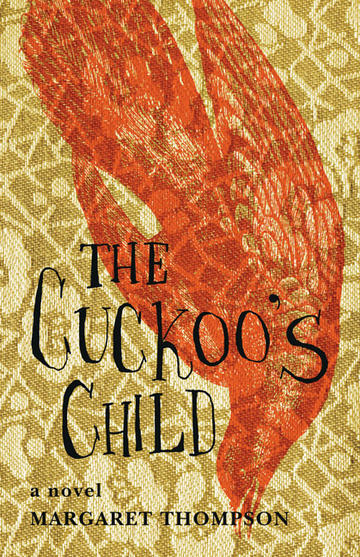In her forties, Livvy Alvarsson hopes to be a bone marrow donor for her much-loved younger brother, Stephen. Instead, she discovers she has no idea who she is. This is the second great loss she has suffered, for eleven years earlier her four-year-old son, Daniel, disappeared. Armed with a few clues from wartime England, she embarks on a search for her birth family.
The narrative takes the reader from small-town British Columbia to London, the English countryside, and back. It is a story about loss and grief, and secrets and guilt, but it is also about restoration and balance. As Livvy confides her story to her dying brother, she reveals not only an identity enriched by experience, but also the transcendent importance of family and love.
The Cuckoo’s Child is a compelling and remarkable evocation of a woman’s search for her family history.
“A warm and surprising book: armed with supple prose and a cast of vivid and eccentric characters, Margaret Thompson takes Livvy on a journey that challenges almost everything she thought she knew, and delivers her safely on the other side of loss. Both character and reader are in expert hands.” —Kathy Page, author of Alphabet
Livvy Alvarsson is a strong woman and a strong character, which is why All Lit Up chose to feature The Cuckoo's Child in their Quoted feature.
"In The Cuckoo's Child, Olivia's voice is reflective and even toned, and her anguish is elegantly condensed, as though she is observing her grief from a distance. The descriptions of loss are juxtaposed with detailed descriptions of beauty in nature all around. Thompson's first adult novel . . . will appeal to readers who like introspective literature and a gentle voice." —The Library Journal
"The Cuckoo’s Child is a compelling meld of family mystery and searing meditation upon loss." —The Coastal Spectator
“A keen and compassionate tale about the mysteries of identity. Margaret Thompson confers upon her protagonist a fine sensibility with which to explore the astounding enigma of her own life. It’s a worthy quest for her, and for us.” —John Gould, author of Seven Good Reasons Not to Be Good
"Novels love a changeling—there's something Dickensian about this story of mistaken identity." —The Globe and Mail



